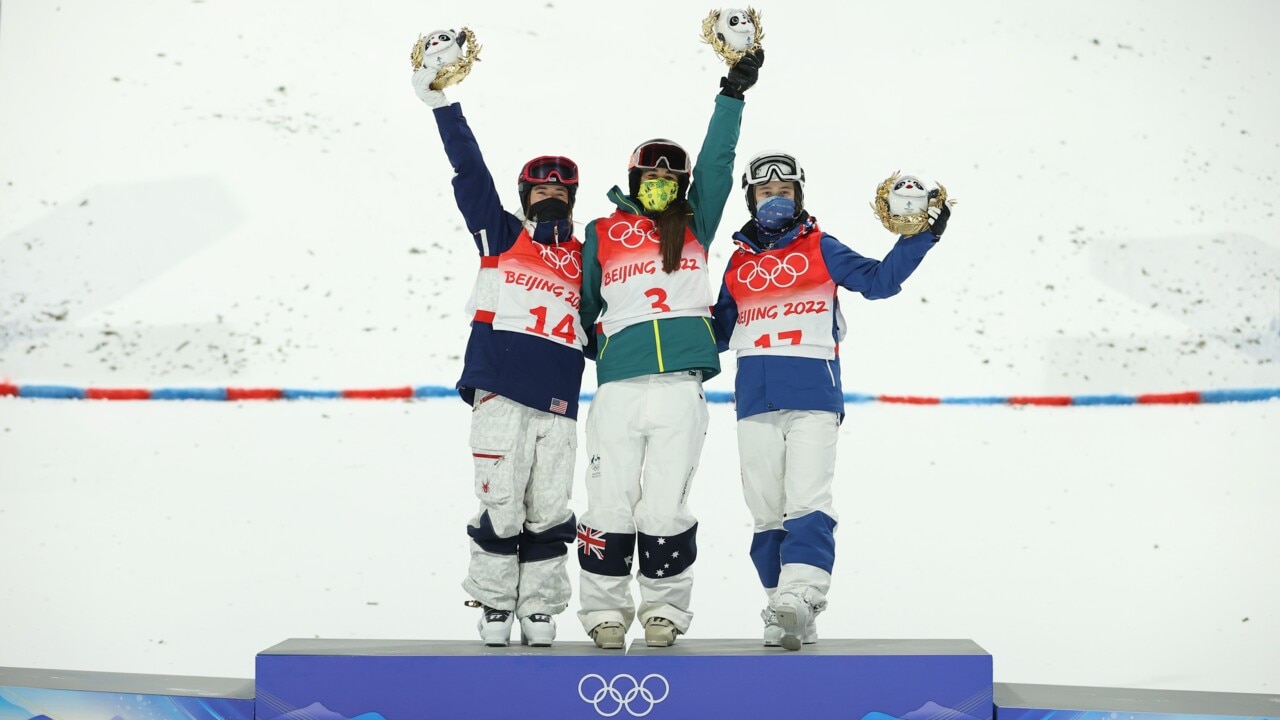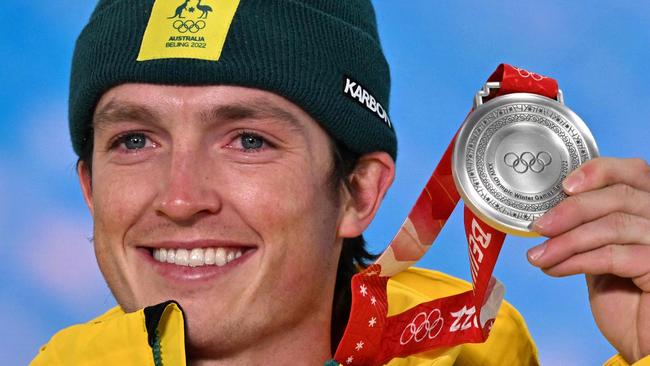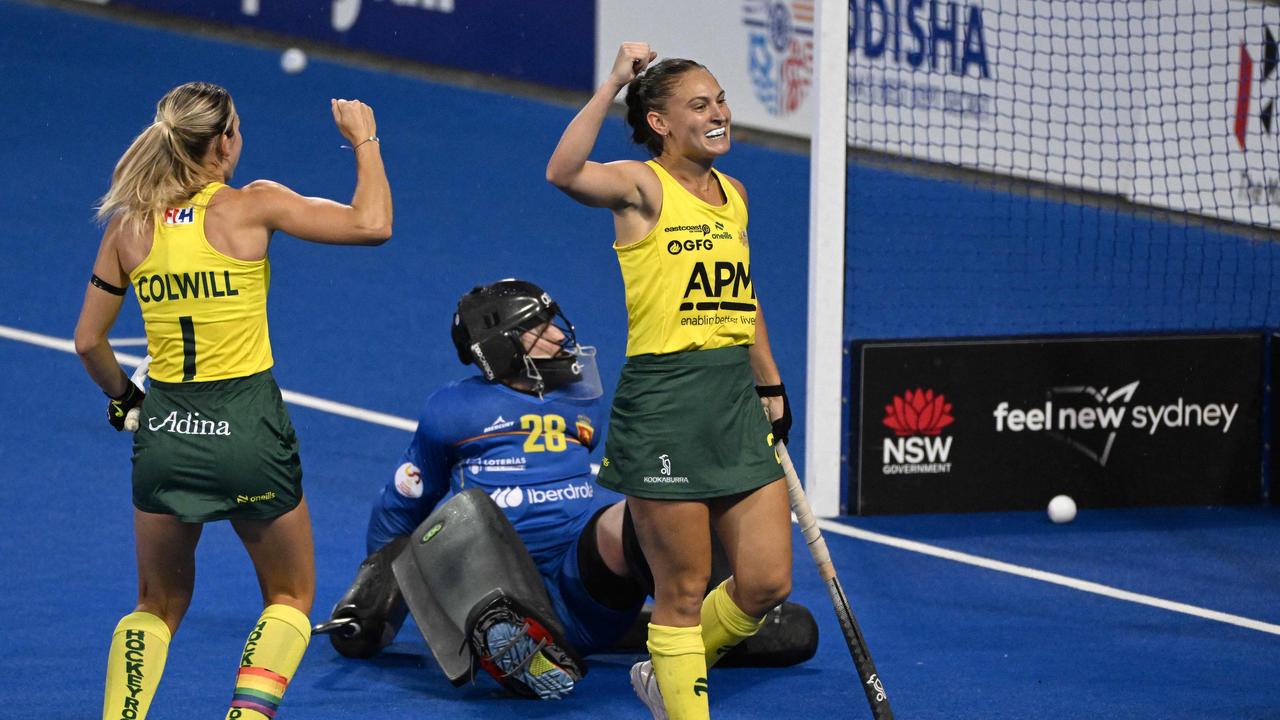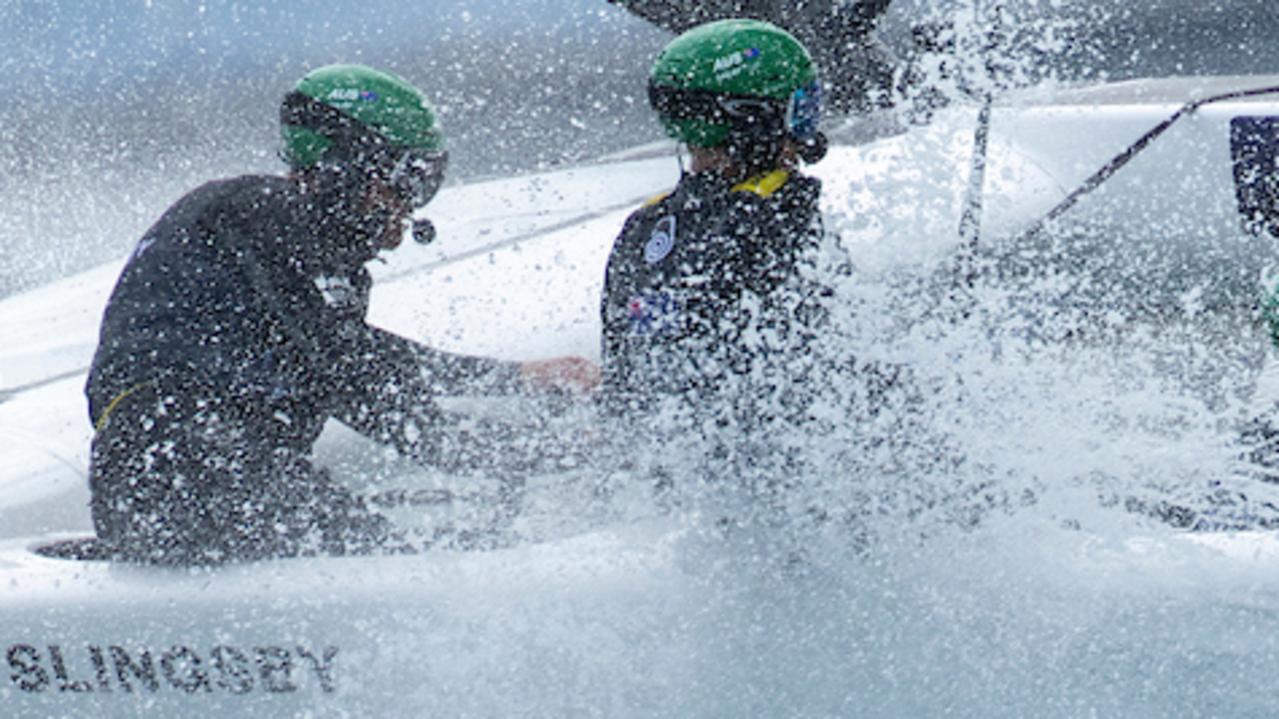
The Australian Olympic Committee spent $4m on the country’s hugely successful Beijing team, but did on-snow pampering also buy their silence?
None of the 43 members of the Australian team who competed in China has spoken out about anything other than performances.
On Sunday, Bree Walker and Kiara Reeinghius, who finished 16th in the two-woman bobsleigh, responded to a question about the appropriateness of the Games behind held in China.
They said “it is a very big deal to have the opportunity (to race), we are really grateful to be here”.
Walker added: “We are athletes (concentrating on) our performance and anything bigger than that we are not focusing upon.”
Yet issues have been front and centre at the Games, such as Russian drug positive Kamila Valieva’s meltdown on ice, Peng Shuai’s photo opportunities with IOC president Thomas Bach and China’s Olympic spokesperson claiming Uigher camps were “lies”.
During the Games, the sensitivity of such issues manifested itself in Dutch journalist Sjoerd de Daas being dragged off by security staff while doing a live cross to The Netherlands, and a Japanese journalist for Kyodo news prevented from asking questions of a Hong Kong athlete.
A Finnish athlete had her Instagram posts deleted because they showed flooding in the Athletes village; and even China’s poster girl Eileen Gu had an Instagram comment talking about getting around China’s internet firewall taken down.

All the while, the Australian team was cosied up in the Australian cell block of the Olympic compound enjoying luxury home-away-from-home comforts. A barista was flown in to make decent coffee, chefs prepared special food, much of which was also flown in, and athletes were chauffeured to venues in cars to avoid the dramas of bus connections … and minimise contamination with other people.
Australia competitors were either ignorant of, or chose to ignore, events occurring outside their privileged bubble. Unquestioning, at least in public, were they lulled into being a political pawn in China’s sports washing of its human rights reputation?
Australian chef de mission Geoff Lipshut said the fact that Australian team members hadn’t been allowed to mix and mingle, or even talk to athletes from other teams in the village, had contributed to an unprecedented bonding of the Australian team.
He felt this isolated team culture had been an important factor in Australia winning four medals at the Games: a gold to Jakara Anthony, silvers to Jackie Narracott and Scotty James and a bronze to debutant Tess Coady.
Lipshut insisted athletes weren’t muzzled and were free to express any views they may have held, but none has spoken out.
Only snowboard cross fourth-placegetter Belle Brockhoff said she would speak out once she had finished competing.
It appears many Australian competitors welcomed the prison-like strict rules – flying in just before their competitions and flying out within 48 hours of finishing, housed in their isolated compound that they couldn’t leave.
Those who didn’t perform up to expectations had the sympathetic shoulders of experienced Olympians Alisa Camplin and Daniel Kowalski to lean upon.
Lipshut said he believed athletes had not expressed political views because they would prefer the focus to be on their sports, which are in the headlines for only a short time.
Another team official said the selection of China was taken by the IOC seven years ago when most athletes were children and “they were there to do their job, which was to compete and which they did”.




